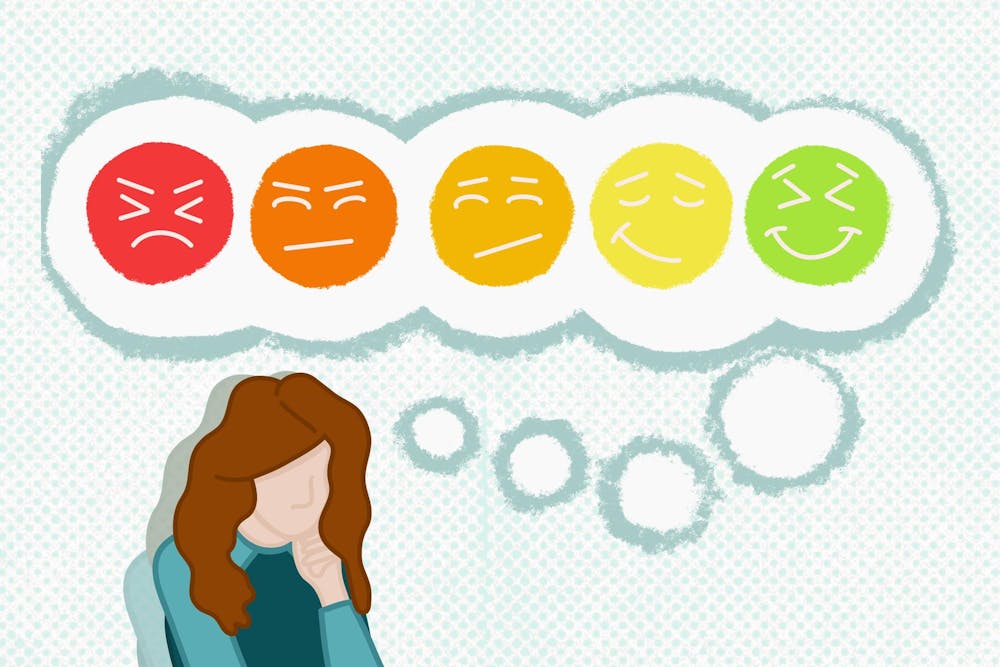When clinicians send patient-satisfaction surveys, they often ask the procedural questions such as, “Can you walk up steps?” or “Can you get in and out of the bath by yourself?” to measure if medical care impacts quality of life.
But Leah McClimans, a USC professor in the Department of Philosophy and director of Undergraduate Studies and Women’s and Gender Studies, said she and other researchers are looking for more representative and impactful results from patients.
She and other researchers work closely with clinicians, epidemiologists, psychologists and numerous forms of therapists to improve the methods of gathering information from patients. Discussions with medical and clinical workers often include suggesting new practices and questions to ask patients for more accurate and representative responses.
But some results are not quantitative data that can be measured.
“You’re trying to measure their wellbeing or quality of life in order to find out if a kind of surgical or medical intervention was effective or successful,” McClimans said. “But it just seemed to me at the time like, ‘How do you do this? How do you take something that seems so ineffable, or changeable, or indeterminant, uncertain, and how do you measure it?'
Clinics and hospitals easily track and assess their own results through metrics like patient population and retention. But McClimans has done philosophical research that delves deeper into each individual survey, asking why standards are the way they are and what they can do to improve results.
Sebastian Rodriguez Duque, a recent McGill University doctoral graduate, moved to the United Kingdom for a post-doctoral philosophy program at Cambridge University. Inspired by McCliman's work, he focuses on the issues in measuring subjective measures such as mental health and quality of life for older adults.
He said an experience at McGill during a seminar sparked his interest in measuring lived experiences from people and their state of mind.
“I remember my supervisor ... at McGill was running a workshop called ‘Measuring the Mind,’” Rodriguez Duque said. “And I thought that was such an arrogant thing to even try to do in terms of things like depression or anxiety. Everybody has different stories about why they’re depressed or anxious.”
Rodriguez Duque conducted direct research with a youth-based mental health agency in British Columbia, Canada. He said the questions were altered towards youth and young adults from ages 12 to 24. People often come up with questions by conveying focus groups to determine what people are dealing with most, what matters most to them and comparing and contrasting previous results.
McClimans tests psychometrics,peeling the layers back of each metric and question. McClimans said the history of patient questionnaires dates back to when clinicians, doctors and others who were knowledgeable about measurements collaborated and evaluated the most relevant societal issues at the time and only ask those questions to come up with a specific result.
“But about 15 years ago, the recommendation changed, and the idea was we should ask people with these conditions what matters to them, and that’s where the questions should come from,” McClimans said.
Rebecca Jackson, a Durham University postdoctoral research associate in Medical Humanities, said she found interest in philosophical measurement during her undergraduate years. She began as a mathematics and creative writing student and worked for her school's historian, breaking down research into digestible information for others.
“I just couldn’t help but notice that in these completely different ways of looking at the world, historically, mathematically and I think creative arts, they were all kind of talking about the same thing,” Jackson said. “Getting at human experience in a way that’s sort of attempting to reduce it, not in a bad way necessarily.”

Scores are a common method used in patient questionnaires and give people the ability to measure their own experiences. They also are able to be manipulated for particular results, Rodriguez Duque said. He questioned why specific questions were asked and how the results were relevant to patients.
“Do each of these numbers have meaning in themselves?” Rodriguez Duque said. “Does the final number have a meaning that is actually interpretable for that person? Can you add up all of those numbers together to make decisions about the system as a whole?”
An example Jackson used for quantitative data measurement is the Empower Flower, that measures many key human aspects, such as connection, self worth and more. It includes a variety of questions for people to ask themselves and rate themselves on a scale from six to a negative three. That unconventional range was by choice.
The organization uses the negative numbers to highlight the opportunities for growth and reflection for students, Jackson said. She also said the positive numbers going up to six also indicate a high ceiling for patients and students to achieve.
Each set of questions serves a different purpose, changing the tone and voice depending on whether it’s for self-evaluation or organizational data collection.
“There can be conflicts when you put one set of priorities over the other, which is why you need philosophers to call out, ‘Hey, you need to maybe be prioritizing people’s experience here,’” Jackson said.

